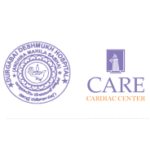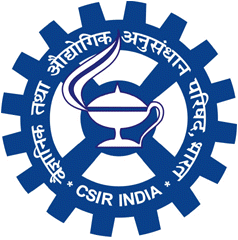Treatments Focus
Vertigo

Have you ever felt dizzy or lightheaded whenever you’ve tried to stand up fast and lost your balance? That’s “vertigo “. Most of us have experienced something similar at some time in our lives. In fact, when left unattended, it is one of the most common reasons for doctor’s consultation in 80 percent of people.
Vertigo or dizziness is a common spinning sensation that can occur even when you are stationary in one spot. It affects 180 million people in India, with women slightly more likely to get it than men.
Vertigo can occur at all ages, but it is more common in older adults over 65. Even then, if you experience repeated episodes of dizziness without apparent cause or for a significant amount of time, seek medical advice immediately. Your doctor will then help you decide on the right treatment option.
Symptoms of Vertigo
Vertigo can start suddenly and last for a few seconds to several days(in severe cases). During an attack, you may experience:
Dizziness or lightheadedness, or unsteadiness
Nausea
Vomiting
Headache
Ringing sound in the ear
Pressure in the ear
Abnormal eye movements
Hearing loss
Causes of Vertigo
Vertigo is often triggered by a problem in how balance works in the inner ear. But some brain and spinal cord illnesses can also lead to Vertigo.
Broadly, some of the most common causes of Vertigo include:
- Benign Paroxysmal Positional Vertigo (BPPV)
- Meniere’s disease (characterized by fluid build-up in the inner ear)
- Inflammation of the vestibular system
- Head injury
- Migraine headache
- Tumor
- Multiple sclerosis
- Stroke
- Ear infection
- Low blood pressure
- Side effects of certain medications (such as anti-depressants, blood pressure medicines, etc.)
- Overconsumption of Alcohol
Diagnosis and Treatment
Diagnosis of Vertigo usually involves a physical examination and a comprehensive history of signs and symptoms. After that, your doctor may perform a Dix-Hallpike test or a “roll test” to reproduce Vertigo. In selected cases, additional tests like MRI scans, hearing tests, and balance tests may be ordered to learn more about your underlying condition.
Often times Vertigo resolves on its own after a few days of bed rest. But in most people, the benefit lies in taking preventive medication. Some cases may also require vestibular therapy, a form of physical therapy.
Vertigo can sometimes be reduced by making specific lifestyle changes. For example
- Sitting down when dizzy
- Sleeping with two or more pillows under the head
- Eating nutritious diet
- Exercising
- Adequate sleep
- Consuming less salt
- Staying hydrated
- Limiting alcohol intake
Surgery is rarely considered when lifestyle changes and medications do not relieve the symptoms.
FAQ's :
References:
- What Can Trigger Vertigo? Signs, Symptoms, Home Treatment & Curable. (n.d.). MedicineNet. Retrieved May 17, 2022, from https://www.medicinenet.com/vertigo_overview/article.html
- Vertigo: Causes, symptoms, and treatments. (2022, January 6). https://www.medicalnewstoday.com/articles/160900
- Demystifying Vertigo and Dizziness. (n.d.). The Times of India. Retrieved May 17, 2022, from https://timesofindia.indiatimes.com/life-style/health-fitness/health-news/demystifying-vertigo-and-dizziness/articleshow/81777888.cms
- Feeling Dizzy? Find Out if it is Vertigo. Mount Elizabeth Hospital. Retrieved May 17, 2022, from https://www.mountelizabeth.com.sg/healthplus/article/dizziness-vertigo
- Skuladottir, A. T., Bjornsdottir, G., Nawaz, M. S., Petersen, H., Rognvaldsson, S., Moore, K. H. S., Olafsson, P. I., Magnusson, S. H., Bjornsdottir, A., Sveinsson, O. A., Sigurdardottir, G. R., Saevarsdottir, S., Ivarsdottir, E. V., Stefansdottir, L., Gunnarsson, B., Muhlestein, J. B., Knowlton, K. U., Jones, D. A., Nadauld, L. D., … Stefansson, K. (2021). A genome-wide meta-analysis uncovers six sequence variants conferring risk of vertigo. Communications Biology, 4(1), 1–9. https://doi.org/10.1038/s42003-021-02673-2
- Kerber, K. (2006). The Genetics of Vertigo. Seminars in Neurology, 26(5), 484–491. https://doi.org/10.1055/s-2006-951620
Related Articles
Book an Appointment to understand how GenepoweRx can help you in treating
Vertigo
Meet The Doctors
Dr Kalyan Uppaluri
Dr Hima Challa
Your genetics … Your Test ... Your Health Success
It’s always the word of mouth that’s the best advice. Here are some of our…


Our Partners






Professional Partnerships
Government Association

